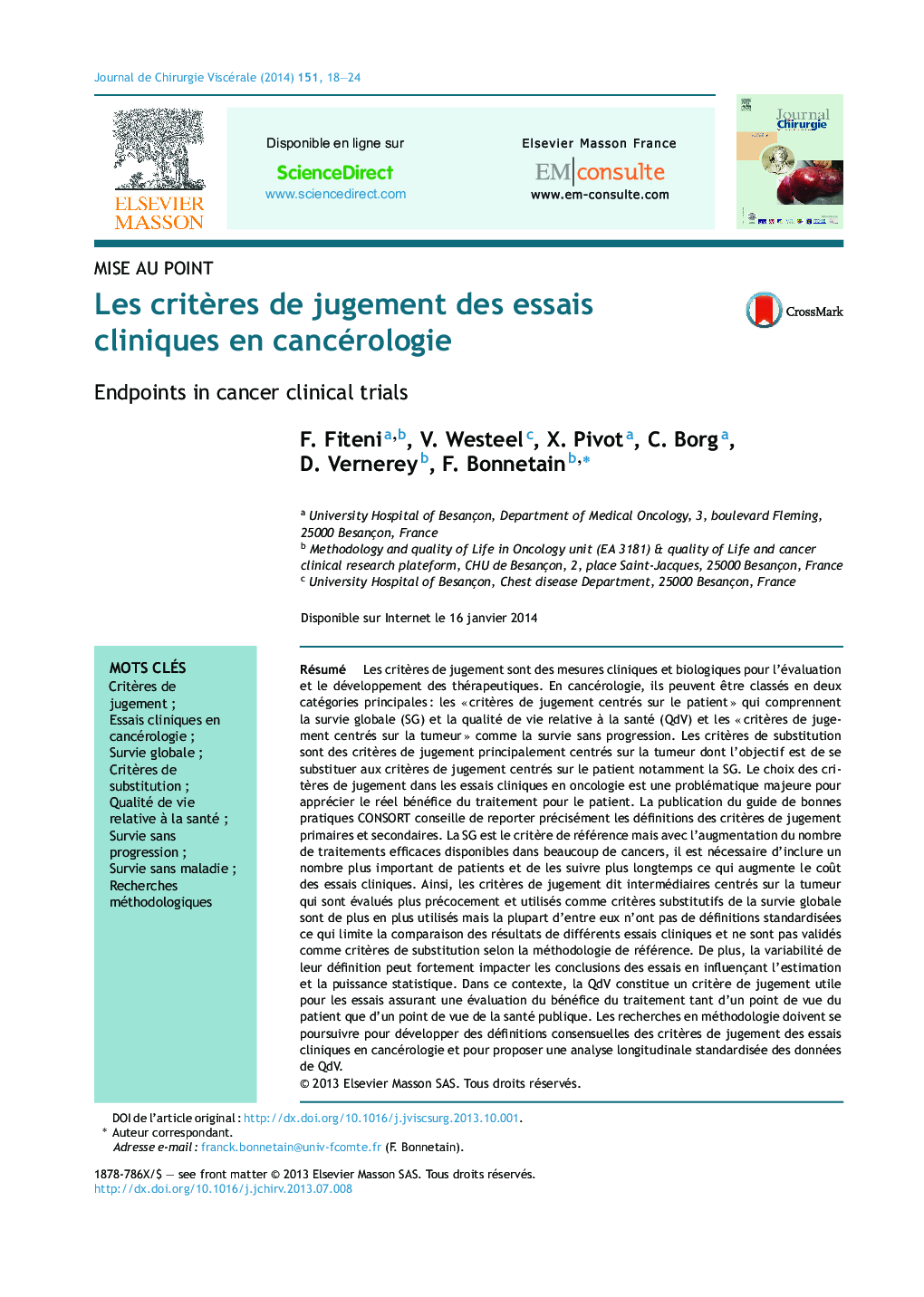| Article ID | Journal | Published Year | Pages | File Type |
|---|---|---|---|---|
| 3311829 | Journal de Chirurgie Viscérale | 2014 | 7 Pages |
Abstract
Endpoints describe clinical and biological measurements in therapeutic development and assessment. They can be classified in two categories: “patient-centered clinical endpoints” including overall survival (OS) and health related quality of life (QoL), and “tumour-centered clinical endpoints” such as progression-free survival. Surrogate endpoints are tumour-centered clinical endpoints, which intend to substitute for patient-centered clinical endpoints specially OS. The choice of the endpoints in oncology trials is a major problem. The publications of the Consolidated Standards of Reporting Trials (CONSORT) statement encouraged the reporting of clearly defined primary and secondary outcome measures. OS is the gold standard but with the increasing number of effective salvage treatments available in many types of cancer, a higher number of patients included and a longer follow-up is necessary which increases the cost of clinical trials. Thus, tumour-centered clinical endpoints which could be assessed earlier and used as surrogates for overall survival are more and more studied but most of them currently lack standardised definitions enabling a cross comparison of results from different clinical trials and they have not been validated as surrogate endpoints. In addition, the variability of their definition can strongly impact the trial's conclusions by affecting both statistical power and estimation. In this context, QoL constitutes an available and a useful alternative endpoint for trials to ensure treatment benefit in a patient or public health point of view. Methodological researches should be pursued to develop standard outcome definitions for use in cancer clinical trials and to define a standardized analysis of longitudinal QoL data.
Keywords
Related Topics
Health Sciences
Medicine and Dentistry
Gastroenterology
Authors
F. Fiteni, V. Westeel, X. Pivot, C. Borg, D. Vernerey, F. Bonnetain,
